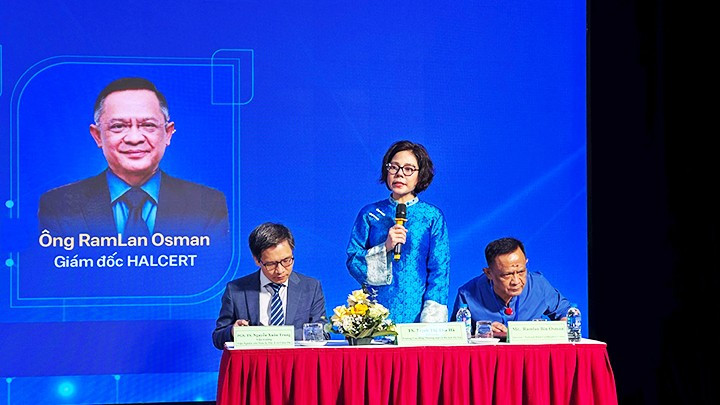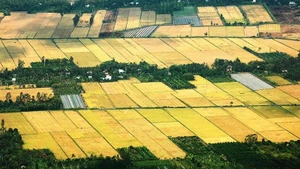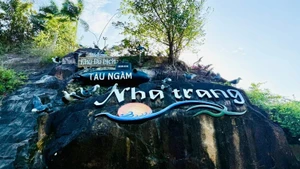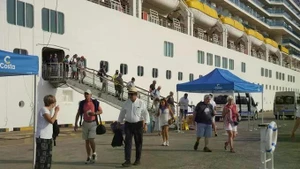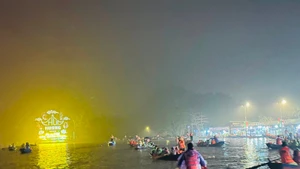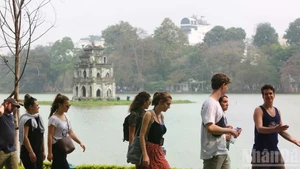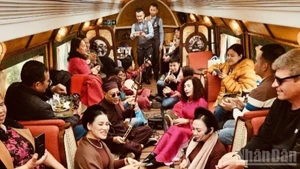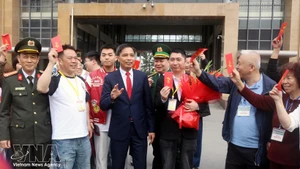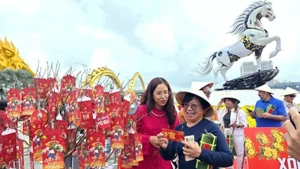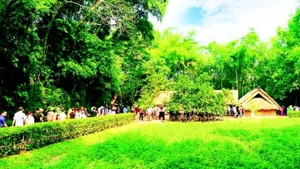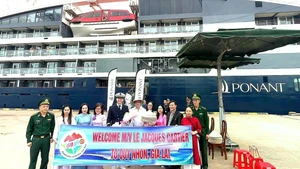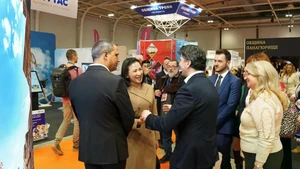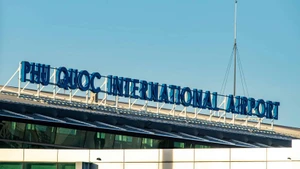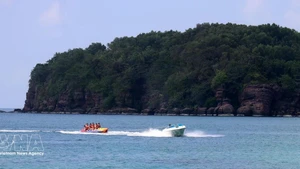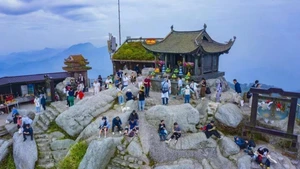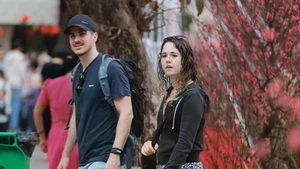The seminar was organised by Hanoi College of Commerce and Tourism (HCCT) in collaboration with the Institute for South Asian, West Asian and African Studies (ISAWAAS) under the Vietnam Academy of Social Sciences (VASS), RMIT University, and the embassies of Azerbaijan, Pakistan, Palestine, Malaysia, Turkey, and Kazakhstan; the Vietnam Halal Certification Centre; and Halal Raja Vietnam Consulting and Training Co., Ltd.
The seminar focused on key areas such as developing policies and strategies for Halal tourism in line with global trends; strengthening international cooperation and connections among stakeholders to promote Islamic tourism; boosting the training of high-quality human resources for the Halal tourism sector; and building the image of Hanoi as an attractive and friendly destination for Muslim travellers.
Speaking at the seminar, H.E. Kohdayar Marri, Ambassador Extraordinary and Plenipotentiary of Pakistan to Vietnam, emphasised the need to properly understand the concept of Halal tourism. He added that Halal tourism refers to services that are friendly and aligned with the specific requirements of Islam. In recent years, Halal tourism has emerged as a global trend, making significant contributions to the tourism industries of many countries. It is estimated that there are around 1.9 billion Muslims worldwide, projected to reach nearly 2.2 billion by 2030, accounting for about 30% of the global population. By then, Halal tourism is expected to contribute approximately 334.5 billion USD to the global tourism industry.
In light of these promising figures, many countries around the world have already implemented various policies to attract Muslim tourists. According to the Global Muslim Travel Index (GMTI) 2022, several non-Muslim countries in the region near Vietnam, such as Singapore, Taiwan (China), and Thailand, rank among the top three favourite destinations for Muslim travellers outside the Organisation of Islamic Cooperation (OIC).
Meanwhile, Hanoi, as a key cultural, economic and political centre of Vietnam and Southeast Asia, is working towards becoming a friendly and culturally diverse tourism destination. However, Halal products and services in Hanoi remain underdeveloped and inconsistent, resulting in limited appeal to Muslim tourists.
“We must face the reality that Hanoi is not yet meeting the needs of Muslim tourists. The interest of Vietnamese people in attracting Muslim visitors has only emerged recently, following the government's directive to develop the Halal economy. Despite being a city of nearly 10 million people, we only have one mosque, a handful of Halal-certified restaurants, and accommodation facilities that do not cater to Muslim requirements. The policies are in place, now is the time to take action,” stressed Saadi Salama, Ambassador of Palestine to Vietnam.
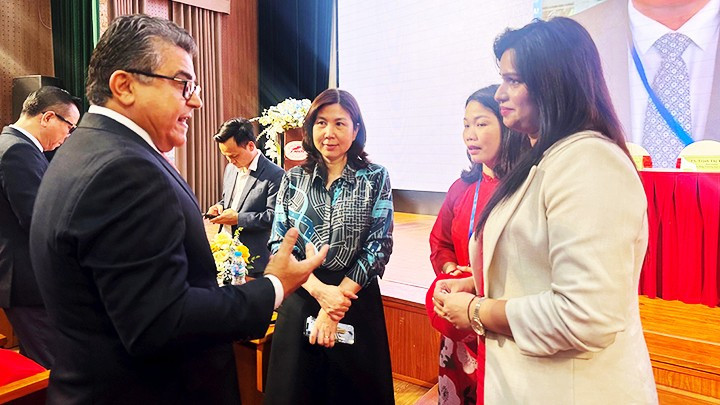 |
| Palestinian Ambassador to Vietnam (left) talks with the speaker. |
To support Hanoi in becoming a desirable destination for Muslim tourists, Associate Professor Dr Dinh Cong Hoang, Head of Middle East and West Asia Studies at ISAWAAS, suggested that the city must first acknowledge its shortcomings and challenges to formulate appropriate solutions. He proposed a series of measures, including: raising awareness and understanding of Halal concepts and Halal-certified products and services among stakeholders in the tourism sector; promoting the development of Muslim-friendly tourism services; creating policies and plans to support Halal development in the industry; enhancing promotional efforts and market outreach; and ultimately building a comprehensive tourism strategy aligned with Halal principles.
In agreement with this proposal, Mr Ramlan Osman, Director of the National Halal Certification Centre (HALCERT), also encouraged the organisation of more seminars to further disseminate Halal-related concepts. Meanwhile, the Palestinian Ambassador to Vietnam also acknowledged that the initiatives proposed at the HCCT-led seminar were highly practical and aligned with the Vietnamese government's interest in fostering the Halal industry in the country. This is a crucial field for Vietnam, a nation that has opened up and seeks to expand and deepen its relations with countries around the world.
“When visitors come to Vietnam or Hanoi in particular, they find a beautiful land with a rich cultural heritage. However, how to attract this potential segment of tourists from Muslim countries remains a pressing question,” Mr Salama stressed. He also expressed his belief that the Hanoi People's Committee and relevant authorities will surely overcome the challenges and find a coordinated path to develop Halal tourism in the capital.
